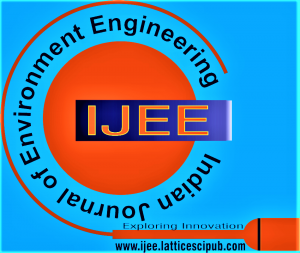Competing Interests/ Conflicts of Interest:
- Definition
- Author’s Accountability for Competing Interest
- Reviewer’s Accountability for Competing Interests
- Editors/ Editorial Board Members Accountability for Competing Interest
- Template for Competing Interest
Definition:
Authors must ensure that they disclose any working and financial affiliations with organisations while submitting their work. When an author, sponsor, or employer has financial, commercial, legal, or business affiliations with individuals or organisations involved in the research, it can be considered a conflict of interest. Clear and thorough disclosure is essential to maintain transparency, research credibility, and integrity. Any potential conflicts of interest must be disclosed at the earliest opportunity1.
Authors, reviewers, and editors must disclose all potential conflicts of interest. This includes any factors that could impact their research or the review and publication of their article. If an author is uncertain whether something qualifies as a conflict of interest, they must contact the editor or publisher before submitting their work. All parties involved in the publication process must take this matter seriously and act accordingly2,3.
Author’s Accountability for Competing Interest:
When submitting an article for peer review to the Indian Journal of Environment Engineering (IJEE), the corresponding author must declare conflicts of interest, if any. Authors must disclose any financial support received from third parties or any other potential conflicts of interest, if any. If you suspect the editor or reviewer handling your submission may have conflicts of interest, immediately inform the journal. It is crucial to note that there should be no conflicts of interest to disclose. This information should be provided in the cover letter or in the article itself without fail. The possible conflicts of interest may be enclosed:
- Any connectivity between the author and editor.
- Economic or particular interests in stopping the research.
- Unrevealed funding details.
- Any stake (financial or individual) in the research outcomes.
- Any uncertain patent.
All authors, irrespective of the peer review model, must declare their competing interests at the end of their article. This declaration is separate from any prior statements made during the submission process. The author’s response will be disclosed using one of the standard sentences commonly found in published articles:
- The authors have conflicts of interest that are detailed below.
- The authors declare no conflicts of interest.
- Due to confidentiality agreements, authors cannot disclose any potential conflicts of interest related to this work.
Reviewer’s Accountability for Competing Interest:
Peer reviewers must remove themselves from cases where significant conflicts of interest, whether financial or otherwise, exist. Failure to do so will result in potential consequences. They must inform the editors of any related conflicts of interest, and the editors will consider these statements when evaluating the reviewers’ recommendations. This process must be followed to maintain the integrity of the review process.
Editors/ Editorial Board Members Accountability for Competing Interest:
As an editor or member of the Indian Journal of Environment Engineering (IJEE), it is essential to disclose any possible conflicts of interest, whether related to finances or other factors, that could affect your editorial choices or give the appearance of doing so. Editors/ Editorial board members must reveal conflicts of interest, if any, and remove yourself from the peer review process, if necessary. In the case of conflicts of interest, editors/members must avoid overseeing articles. The conflicts of interest can also involve if editors/members have published articles previously with one or more authors or are affiliated with the same institution.
Template for the Conflicts of Interest:
We recognise that conflicts of interest can be a delicate subject for authors, reviewers, and editors. To help you navigate this complex issue, we provide helpful templates that can be easily downloaded. Please know that we are committed to supporting you in upholding the utmost standards of integrity and impartiality in your work.
References:
